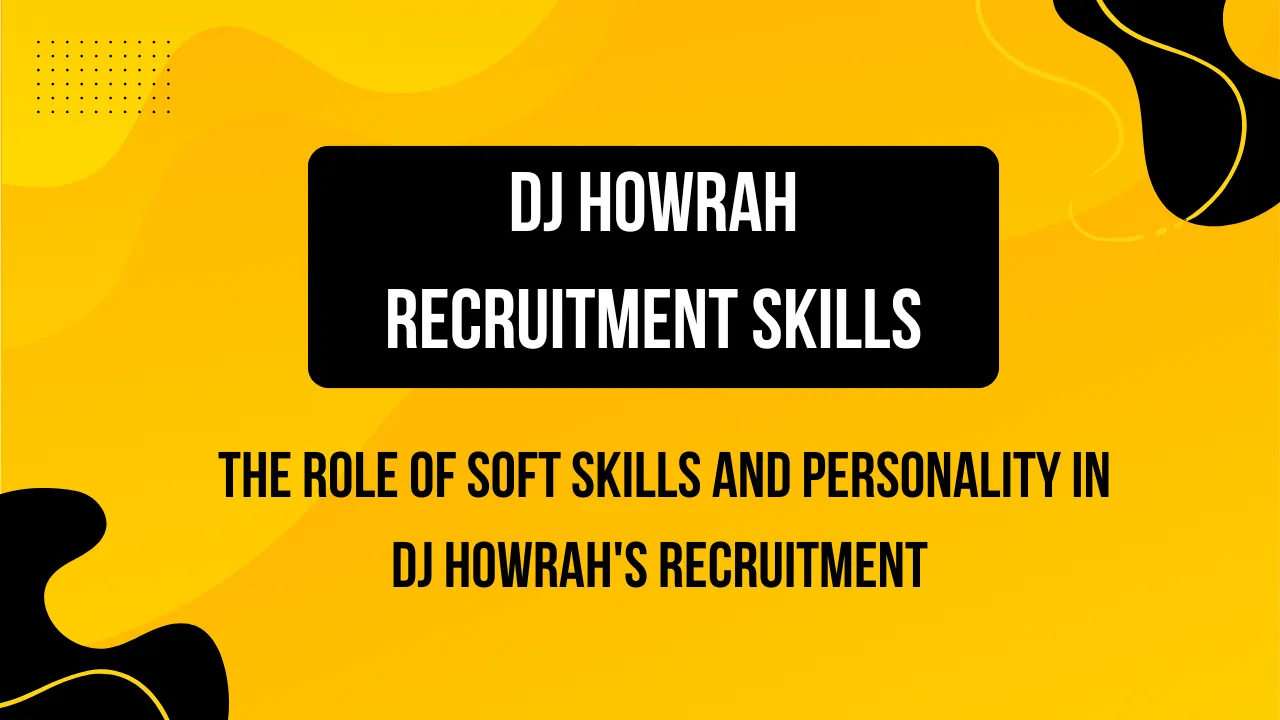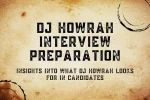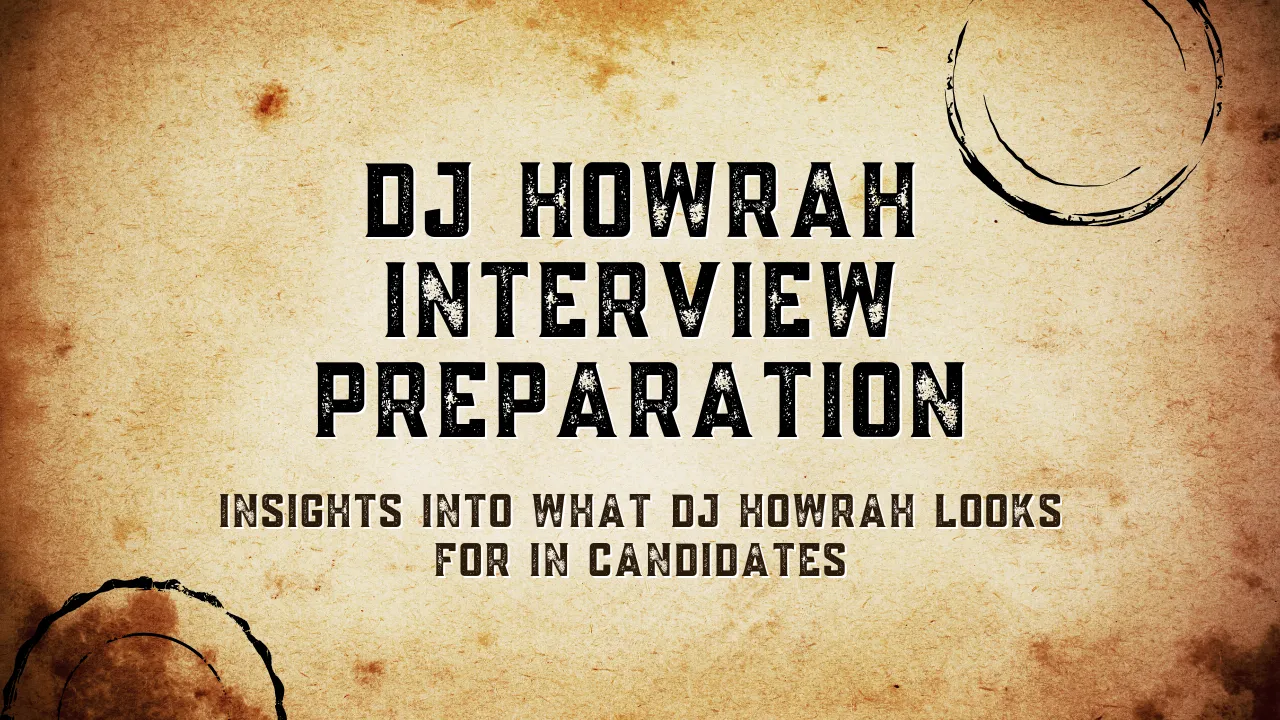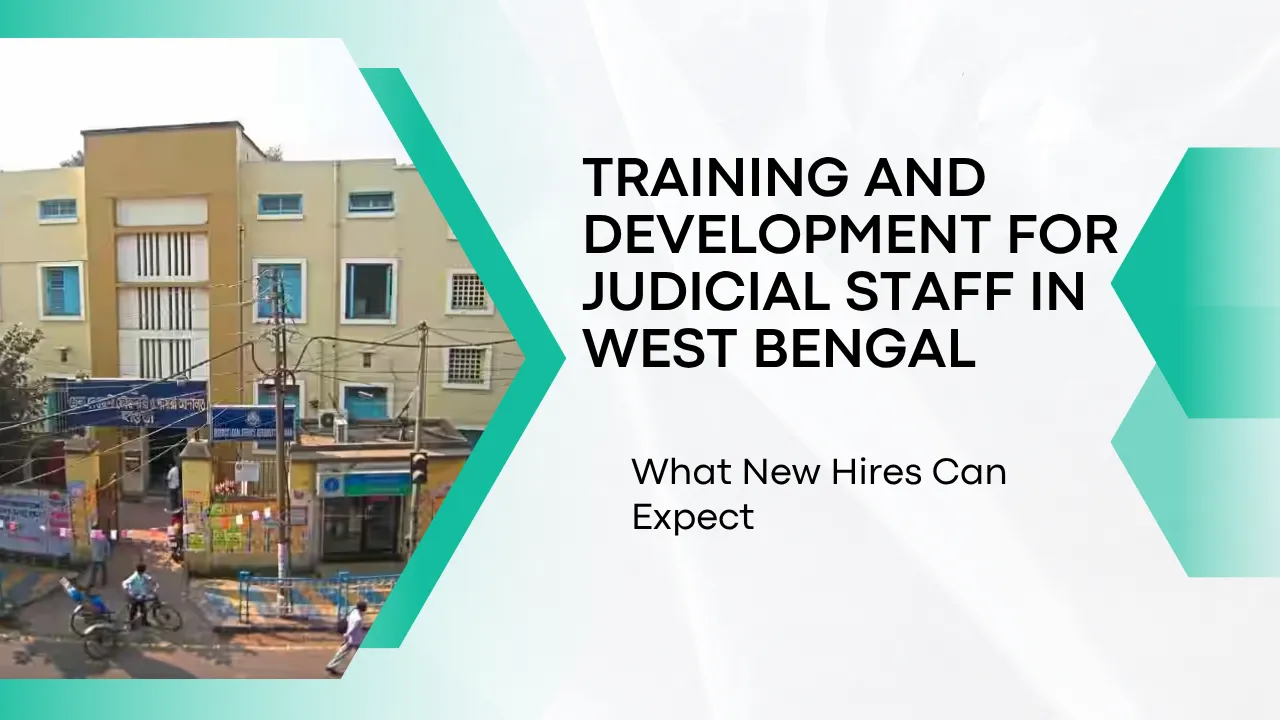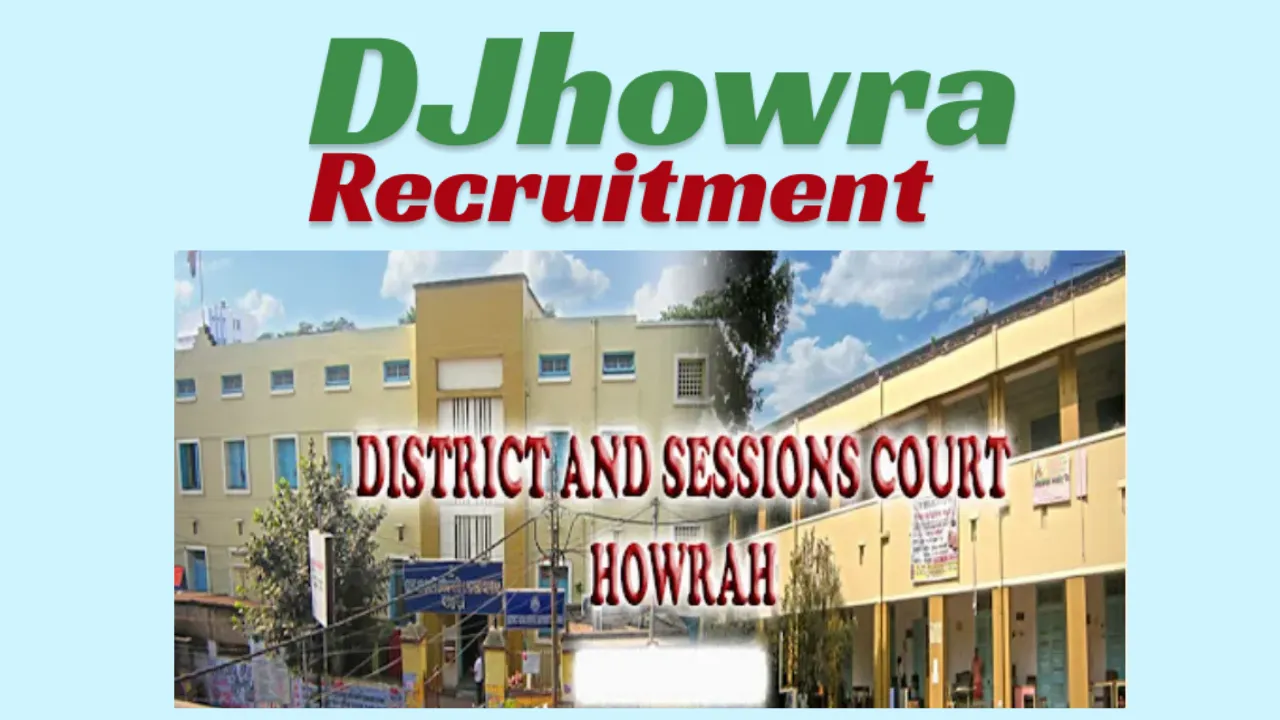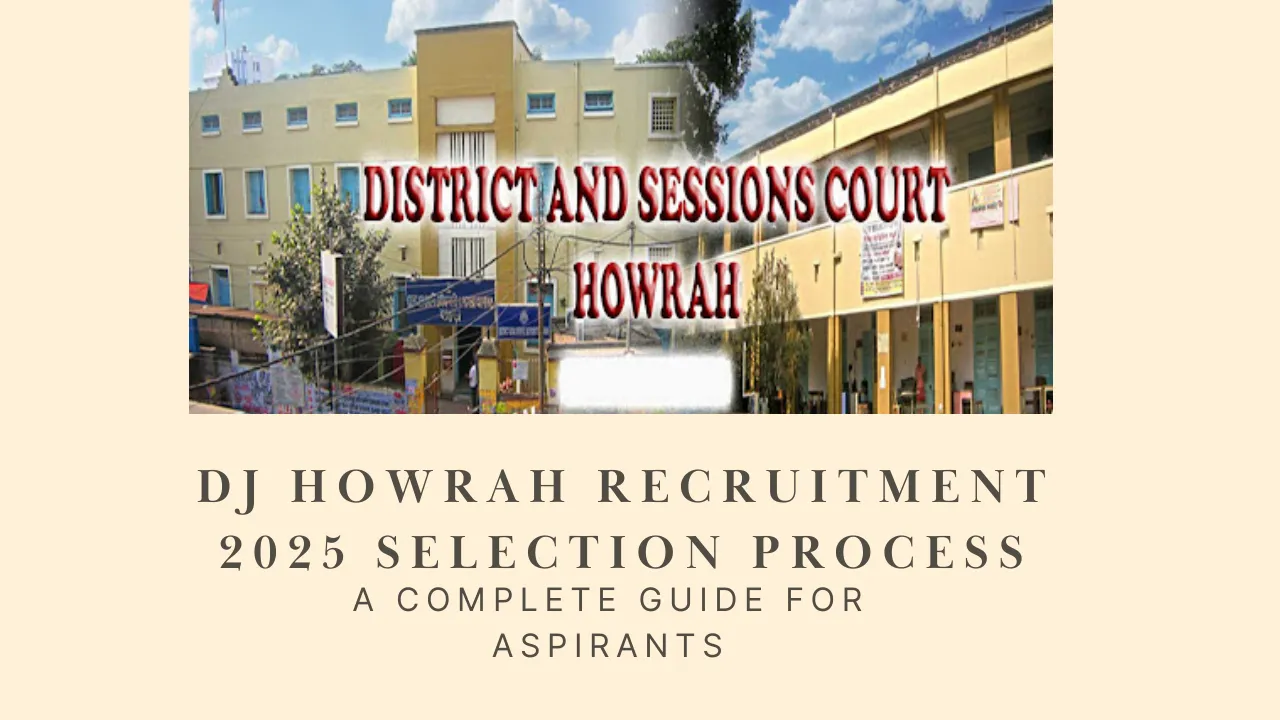DJ Howrah recruitment skills: Landing a role at DJ Howrah involves much more than demonstrating technical abilities or passing written exams. In fact, what truly distinguishes exceptional candidates is their mastery of interpersonal traits.
For roles like Lower Division Clerk (LDC), Stenographer, or Process Server, practicing DJ Howrah recruitment skills such as communication, integrity, and teamwork often makes all the difference.
DJ Howrah recruitment skills
Building on technical knowledge, the recruitment process places great emphasis on soft skills. From demonstrating honesty and attention to detail to showing adaptability in challenging situations, these qualities ensure candidates not only get selected but thrive in the judiciary’s demanding environment. Focusing on refining these DJ Howrah recruitment skills during your preparation can increase your chances of success significantly.
Overview Table: Ranking the Top Soft Skills for DJ Howrah
| Skill | Why It Matters |
| Integrity & Honesty | Maintains court confidentiality and builds public trust |
| Communication (Verbal/Written) | Essential for accurate records, public interaction, and clarity |
| Attention to Detail | Prevents errors that could disrupt justice proceedings |
| Teamwork | Ensures smooth coordination across court functions |
| Problem-Solving | Helps address sudden issues like missing files or data errors |
| Composure | Manages pressure from tight deadlines and emotional court cases |
| Respect for Rules & Hierarchy | Upholds decorum and reflects understanding of judicial procedure |
Integrity and Honesty
Integrity forms the foundation of trust in the judiciary. Staff members routinely handle confidential documents, ranging from case files to personal records. A single lapse in honesty can compromise the court’s credibility. In your interview, be ready to describe instances where you chose honesty over convenience—even when the temptation to cut corners was strong. Such stories confirm your ethical backbone and suitability for a judicial role.
Communication Skills (Verbal & Written)
Clear communication is a lifeline in court operations. Whether drafting official notices as an LDC, transcribing hearings as a Stenographer, or explaining judicial documents as a Process Server, precision and clarity are non-negotiable. To demonstrate your communication skills, speak clearly during the interview and refer to any previous roles that involved detailed writing or public interaction. Conveying information simply and respectfully reflects your capability in critical communication tasks.
Attention to Detail
Even a single misplaced date or typo can derail court procedures. Demonstrating your ability to maintain high standards of accuracy under tight deadlines is crucial. In the selection process, your precision will be tested through document-based tasks. Talk about moments when your attention to detail prevented errors or confusion. An organized, error-free resume and application also reflect this essential attribute.
Teamwork and Collaboration
Court administration is an intricate dance between clerks, stenographers, process servers, and judicial officers. Your ability to work well with others enhances efficiency and court functioning. During the interview, share real-life examples where you worked collaboratively—highlighting conflict resolution, task-sharing, or coordination under stress. This demonstrates your readiness to contribute positively to the judicial team.
Problem-Solving and Adaptability
Unexpected scenarios—such as tech breakdowns, urgent document needs, or irate litigants—are part of daily court life. Recruiters want employees who stay resourceful while respecting rules. Describe instances when you handled unexpected challenges by thinking logically and taking responsible action. Your responses should highlight rule compliance and quick, practical problem-solving.
Patience and Composure
Courts are often high-stress spaces. Interviewers test your composure through situational questions and by observing your demeanor. Maintain calm body language and a measured tone throughout the interview, demonstrating the patience essential to handle emotional litigants or urgent cases without flinching.
Respect for Rules and Hierarchy
Understanding court structure—including roles of judges and clerks—and showing respect for procedures signal your professional suitability. In your answers, mention your knowledge of court hierarchy and discuss times when you followed instructions carefully and took initiative appropriately. Demonstrating this awareness shows that you’re aligned with judicial procedures and decorum.
How DJ Howrah Assesses Soft Skills
Personality Test (Interview Stage)
This stage examines your values, interpersonal qualities, and emotional intelligence. Interviewers gauge honesty, clarity, problem-solving approach, and teamwork through direct and scenario-based questions. Your body language and tone also become indicators of your composure and confidence.
Behavioral and Situational Questions
You’ll face questions designed to reveal how you behave under real court conditions. Use the STAR method (Situation, Task, Action, Result) to structure your answers with clear, real-life examples. This approach helps illustrate how your soft skills translated into positive outcomes.
Skill Tests (Indirect Assessment)
For LDCs and Stenographers, typing accuracy or shorthand tests showcase your diligence and focus. Completing these tasks carefully under time limits highlights discipline—a trait that shines alongside technical competence.
Reference and Background Checks
These stages validate your claimed integrity and work ethic. Ensure your references know your strengths, especially in ethics and reliability.
Putting It All Together: Your DJ Howrah Strategy
Start by understanding the role’s core responsibilities—like document accuracy, public interaction, and court decorum—and align your DJ Howrah recruitment skills with these demands. Practice mock interviews, rehearse behavioral answers, and polish your written communication. Dress professionally, arrive early, and maintain a respectful tone throughout. During the interview, be honest, use concrete examples, and show awareness of court hierarchy and procedures.
Call to Action
Are you ready to move beyond exams and showcase the soft skills police are looking for at DJ Howrah? Begin your preparation now. Enroll in mock interview sessions, join public speaking groups, and cultivate your honesty and composure through real-life practice. A combination of technical readiness and strong soft skills won’t just land you the job—it will lay the foundation for a fulfilling and respected career in the judiciary. Start honing those DJ Howrah recruitment skills today!
FAQs
1. How important are soft skills compared to technical abilities at DJ Howrah?
They hold equal weight. While accuracy and technical knowledge matter, lacking soft skills can hinder your effectiveness and reduce your chances of selection.
2. How can I improve communication skills for the DJ Howrah interview?
Practice structured speaking—describe past work or studies concisely. Engage in discussions or writing exercises to sharpen clarity and tone.
3. What’s the best way to demonstrate integrity during the interview?
Tell genuine stories about ethical decisions or admitting mistakes. Auditors and references will often confirm your integrity later.
4. How should I handle situational questions during the interview?
Use STAR: briefly describe the scenario (e.g., missing file), outline the task, detail your action, and share the result—especially how you followed rules and stayed calm.
5. Does body language really matter?
Very much. A calm, upright posture, steady eye contact, and respectful tone convey confidence and composure—crucial traits for court roles.
Good luck! Your blend of ethics, communication, attention to detail, and composure will propel your DJ Howrah application forward and shape a meaningful role in the justice system.
